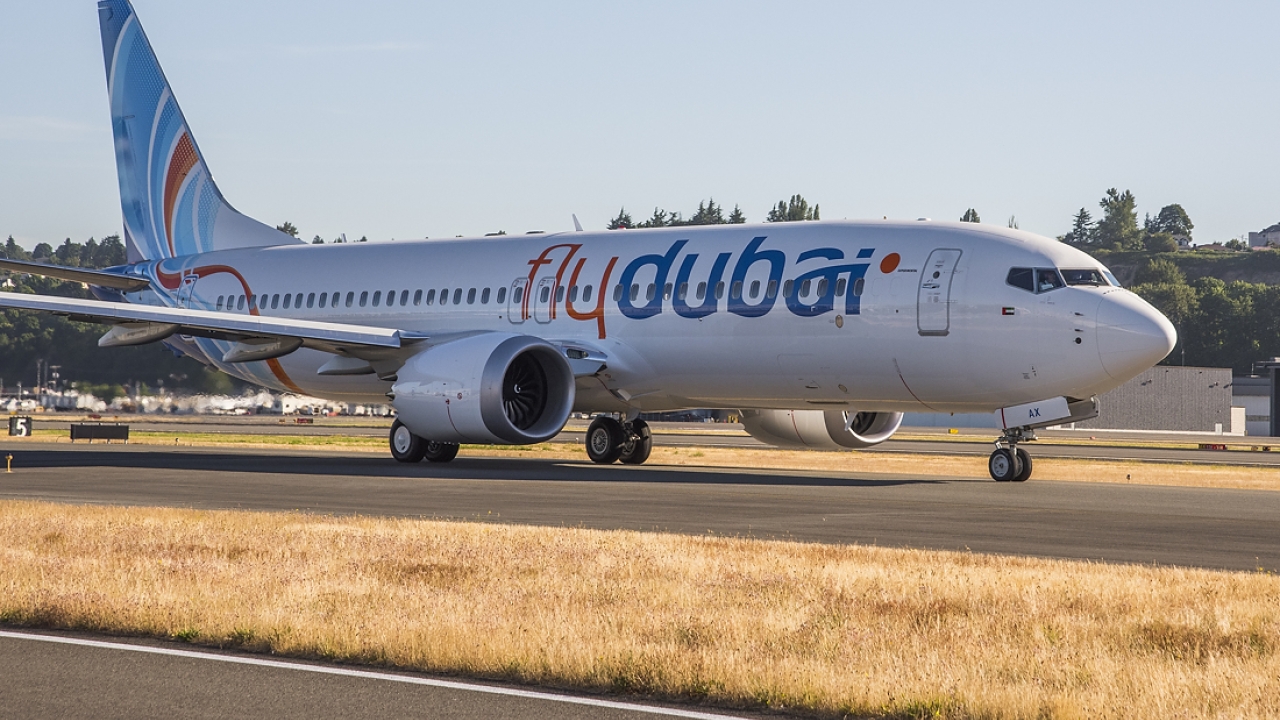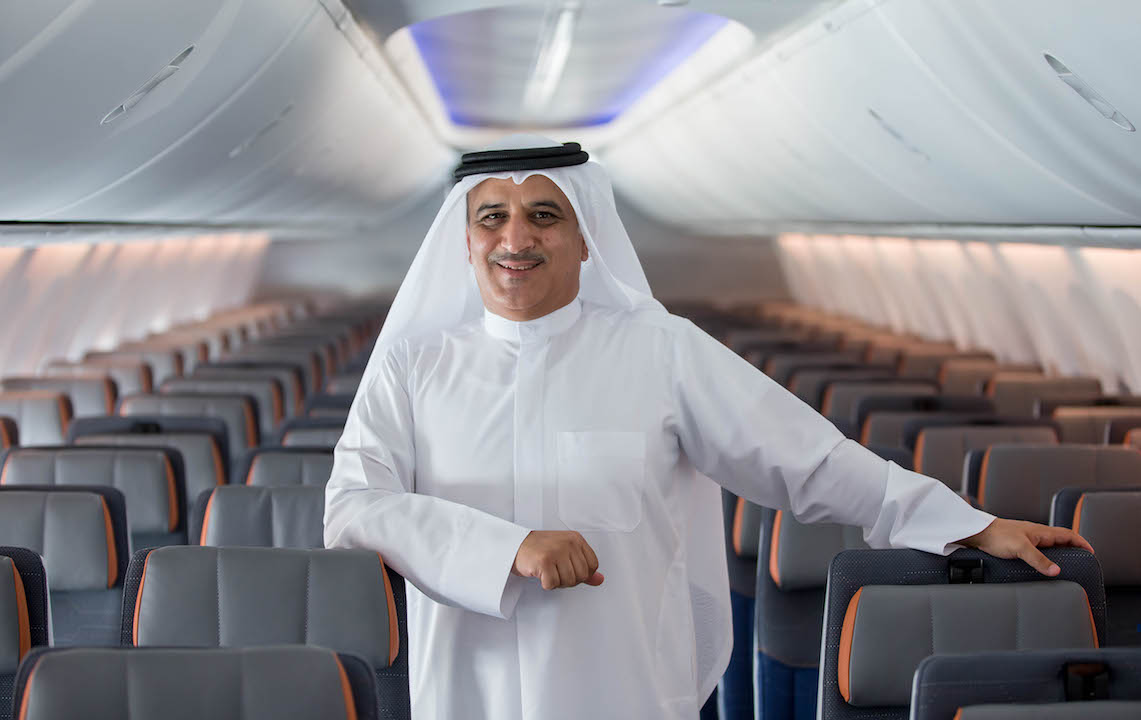Some of our aircraft are missing...
With passenger levels rising steadily within the Gulf, flydubai is seeking to expand – if it can only get its hands on the aircraft it has ordered.

Boeing 737 MAXs are arriving to feed flydubai’s expansion - but not quickly enough, says CEO Ghaith Al Ghaith. Picture: Flydubai
It’s a problem that many airline CEOs would love to have: welcoming so many passengers that they need to expand their fleet rapidly.
However, increasing an airline’s inventory has become problematic since the pandemic, as supply chain problems hobble aircraft manufacturers’ efforts to ramp up production.
It’s a problem with which Ghaith Al Ghaith, CEO of flydubai, is very familiar. The airline has a current fleet of 46 Boeing 737-8s, three 737-9s and 30 older-generation 737-800s. The airline placed major orders with Boeing for more MAXs in 2014 and 2017 but, like many airlines, has experienced a drip-feed of new aircraft rather than the hoped-for flow.
“Our order book must be close to 100,” Al Ghaith noted in early September. “I know, for example, this year, we still have nine aircraft to come. We will be lucky if we can get four or five.”
Nor are the delivery delays likely to end soon: “Next year, and even after that, are all affected.”
Flydubai said earlier this year that another large order was in the works, but the timescale for that has slipped.
The airline was initially hopeful that it would be able to announce the order at the Dubai air show. However, although discussions with the major manufacturers are ongoing, the chance of a big airshow announcement are now unlikely. “There’s nothing maturing fast enough that we can tell you about,” Al Ghaith said.
While Boeing has an advantage in being flydubai’s incumbent aircraft provider, the presence in Airbus’s product line-up of the A321LR and XLR long-range models offers flydubai the chance to extend the reach of its route network, which currently goes as far east as China and as far west as Prague. Al Ghaith is on record as saying that the long-range Airbuses would not be a game-changer for Flydubai, but that they would open up a handful of interesting additional destinations.
“Dubai and the UAE are becoming so popular that, for us, almost everywhere we go, there are opportunities,” he said.

Europe, Asia and Africa will continue to grow in the airline’s route map, while there remain a few additional destinations to be picked up in Central Asia.
Although flydubai began life as a low-cost carrier, it has long since moved to ‘hybrid’ status with a business-class cabin and the carrier introduced a new business-class seat earlier this year.
“Operating in Dubai, the hub of business and commerce in the region, it was an easy decision to introduce business class, and we see this developing further.”
The strategic link with Emirates Airline also means that, “business class has been an important factor to leverage those opportunities.”
Tourism has always been a major part of the UAE’s economy, but tourist numbers throughout the region will grow rapidly in coming years as Saudi Arabia’s burgeoning tourism market comes on-stream. Some resorts along the Red Sea coast will welcome their first guests this year.
Those resorts will start to pull in visitors not only from the Gulf but further beyond, so that non-Saudi carriers like flydubai will also benefit, believes Al Ghaith.
The huge growth in traffic will be helped by relaxation of Saudi Arabia’s traditionally tight visa rules. For many years, only religious or business visas were available and both involved time-consuming procedures.
“In the olden days, to get a visa to go for umrah, you used to go through one agent that was authorised. The amount of time to issue one visa took days and was too expensive.
“Now, with the development of the electronic visa, someone in a village in Central Asia can tap in their details and get a visa in 24 hours. Those people who wanted to go on umrah for such a long time and never could before, can now do so. Every airline is benefitting from that; demand is so high,” said Al Gaith.
Stay up to date
Subscribe to the free Times Aerospace newsletter and receive the latest content every week. We'll never share your email address.


